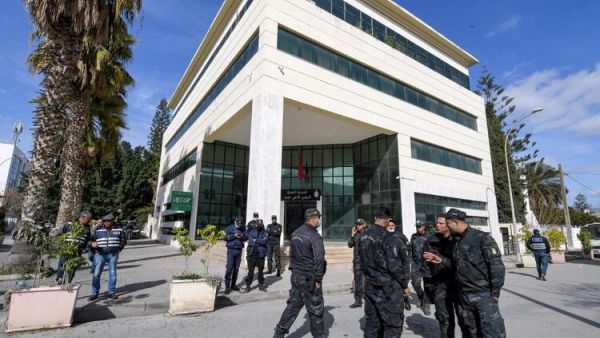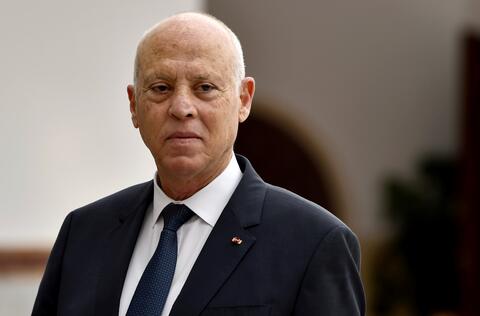Tunisian security forces closed the headquarters of the Supreme Judicial Council and prevented employees from entering it, according to the head of the council on Monday.
“This is a new phase of the assault on the parliament, the break-up of state institutions, and the seizure of judicial power,” Youssef Bouzacher, the head of the judicial council, told the private IFM radio.
Police in Tunisia closed the Supreme Judicial Council, its top legal authority, after President Saied dissolved it claiming it is corrupt.
— AJ+ (@ajplus) February 7, 2022
Critics call the move — which comes after he dismissed the government, banned protests and said he could rule by decree — an effective coup. pic.twitter.com/cJ4lmsiMJw
The closure came a day after Tunisian President Kais Saied said he plans to dissolve the country’s Supreme Judicial Council, amid tension with the judiciary.
The council “has become a thing of the past,” Saied said in a statement on Sunday.
“This council has become a place where positions and appointments are sold according to loyalties," he added.
The council is an independent constitutional body whose tasks include ensuring the independence of the judiciary, holding judges accountable, and granting them professional promotions.
Bouzacher also threatened to take “appropriate measures” once the reasons for the closure “become clear."
On Sunday, the council announced in a statement its refusal to dissolve it, saying the move was illegal and unconstitutional.
Various judicial bodies and political parties also rejected the decision to dissolve the council.
There was no immediate comment from the Tunisian authorities about Bouzacher's statements, but opponents accuse Saied of trying to control the judiciary having assumed all other executive powers.
Tension has marred Saied’s relations with the council, with the Tunisian leader criticizing the judiciary over delay in issuing rulings in cases of corruption and terrorism.
Last July, Saied dismissed the government, suspended parliament, and assumed executive authority amid mounting public anger over economic stagnation and political paralysis.
While Saied insists that his "exceptional measures" were meant to "save" the country, critics have accused him of orchestrating a coup.
Tunisia has been seen as the only country that succeeded in carrying out a democratic transition among Arab countries which witnessed popular revolutions toppling ruling regimes, including Egypt, Libya, and Yemen.









